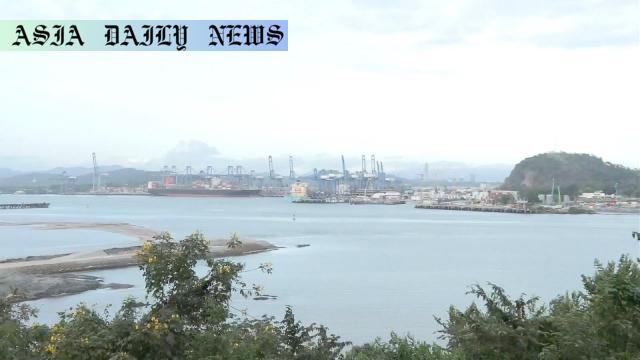Panama Canal: The Panamanian government is considering canceling its extended port contract with a Hong Kong-linked firm under U.S. pressure.
- Panama government considers canceling its port operation deal with a Hong Kong-linked firm.
- U.S. voices concerns about Chinese influence in the Panama Canal region.
- Panama distances itself from China’s Belt and Road Initiative.

Panama Considering Cancellation of Hong Kong-Linked Port Deal
The government of Panama is reportedly re-evaluating its long-term contract with a Hong Kong-based subsidiary responsible for operating two key ports adjacent to the Panama Canal. The contract, originally extended until 2047, has come under scrutiny following concerns about growing Chinese influence in the region. These concerns have been amplified by the United States, which views the canal’s operations as strategically critical to global trade and regional security.
Strategic Importance of the Panama Canal
The Panama Canal, constructed by the United States and now controlled by the Panamanian government, serves as one of the most vital arteries for global maritime trade. The ports of Balboa on the Pacific side and Cristobal on the Atlantic side are critical infrastructures, enhancing the canal’s logistical efficiency. However, the involvement of a Hong Kong-linked company in managing these ports has raised red flags in Washington due to the geopolitical competition between the U.S. and China.
U.S. Concerns Over Chinese Influence
The United States has expressed apprehensions about Chinese influence in the Western Hemisphere, with the alleged increasing presence in the Panama Canal area being a key concern. U.S. Secretary of State Marco Rubio described the current arrangements as a potential security threat during discussions with Panamanian President Jose Raul Mulino. The U.S. government regards the canal as an essential asset for both commerce and defense, considering it was originally an American-built and operated infrastructure until its handover to Panama in 1999.
Potential Political and Economic Repercussions
Should Panama decide to cancel the contract with the Hong Kong-based port operator, significant economic and diplomatic implications may unfold. The move could signal a shift in Panama’s foreign policy, distancing itself from China’s Belt and Road Initiative and aligning more closely with U.S. interests. This distancing was made evident with Panama’s recent indication that it would not renew its Belt and Road agreement with China. However, such decisions may also invite retaliatory measures from Beijing, potentially affecting Panama’s trade and investment relations with China.
Panama’s Efforts to Strengthen Ties With the U.S.
Amid concerns over high passage fees for ships traversing the canal, Panama has reportedly proposed free passage for U.S. naval vessels. This gesture reflects Panama’s attempts to strengthen ties with Washington and navigate the pressure surrounding the canal’s geopolitical dynamics. President Trump has frequently criticized the fees and has suggested increasing American oversight of the canal’s operations.
Global Implications of the Panama Decision
The evolving situation in Panama has far-reaching implications for global trade and geopolitical stability. The Panama Canal is a critical chokepoint for maritime traffic, connecting the Pacific and Atlantic Oceans. Changes in its governance or operational structure could disrupt global supply chains and aggravate tensions between major powers like the United States and China.
Conclusion: Navigating Geostrategic Challenges
The Panama government’s deliberation over the port contract signals the intensifying complexities of regional geopolitics. The United States’ pressure to curb Chinese influence contrasts with Beijing’s growing global ambitions, leaving Panama in a challenging position. Ultimately, Panama’s decision will shape not only its own economic and diplomatic trajectory, but also broader international power dynamics. This issue underscores the enduring importance of the Panama Canal as a geopolitical fulcrum in an increasingly interconnected world.



Commentary
Geopolitical Significance of the Panama Canal
The ongoing deliberations in Panama around its port deal with a Hong Kong-linked firm underscore the immense geopolitical importance of the Panama Canal. As a vital artery for global trade, the canal’s control extends well beyond economic considerations, delving into issues of national security and regional influence. The United States’ concern about Chinese presence in the canal’s vicinity is a reflection of this critical significance, marking another chapter in the global power struggle between Washington and Beijing.
Balancing Domestic and Global Pressures
For Panama, the decision to potentially cancel the deal highlights the balancing act required in today’s interconnected geopolitical landscape. While aligning with U.S. preferences might strengthen bilateral relations, particularly in terms of security and trade benefits, it could also alienate China, an increasingly influential global player. The economic repercussions of such a decision, including possible diminished Chinese investment, need careful consideration by Panama’s leadership.
The Broader Implications
From a broader perspective, this development reflects the growing trend of smaller nations becoming arenas for larger powers to compete for influence. The Panama Canal’s unique value as a cornerstone of global maritime trade makes it more than just a local issue; it is a site where significant international interests converge. Such situations highlight the responsibilities and challenges for nations like Panama as they navigate their role on the global stage.